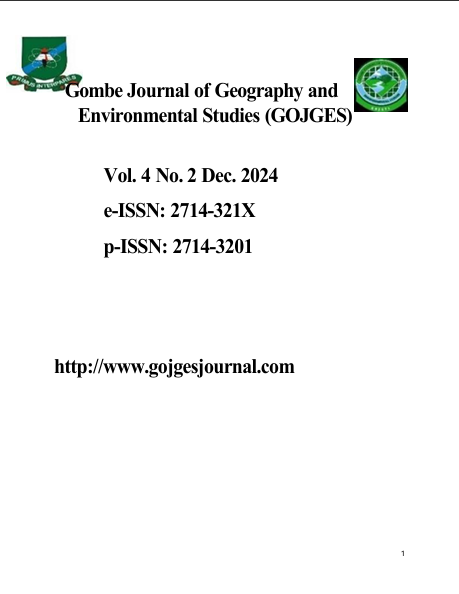IMPACT OF HUMAN ACTIVITIES ON WOODY PLANT SPECIES’ RICHNESS AND DIVERSITY IN THE RAIN FOREST ECOLOGICAL REGION OF ABIA STATE, NIGERIA.
IMPACT OF HUMAN ACTIVITIES ON WOODY PLANT SPECIES’ RICHNESS AND DIVERSITY IN THE RAIN FOREST ECOLOGICAL REGION OF ABIA STATE, NIGERIA.
Keywords:
land use change, biodiversity conservation, rainforest ecology, woody Plant Species, species richness, Shannon-Wiener Diversity IndexAbstract
Deforestation is a challenge to achieving sustainability in the developing world. The study
examined the anthropogenic impact on woody plant species (WPS) richness and diversity in Abia
State, Nigeria. The study focused on three zones across the State: Zone A (areas of high Forests),
B (areas of moderate forests), and C (areas of little forests). It employed a mixed-method approach.
It involved Focused Group Discussions (FGDs) with selected knowledgeable people in the area as
well as quantitative techniques. Shannon Wiener’s diversity Index was used to assess the WPS’s
diversity indices in 90 quadrats of 50 m by 50 m in the study area. Simpson’s Dominance Diversity
Index was used to estimate the species’ richness. Within each zone, inventory of WPS of 10cm
diameter at breast height (DBH) and above was carried out to determine the diversity and
dominance indices. The highest value of both Shannon-Wiener Diversity index and Simpson
Dominance Diversity index was obtained in Ohafia (H1 = 6.04; D = 0.9988) while the lowest value
was obtained in Isiala Ngwa South (H1 = 0.87; D = 0.42). Human activities were the main reasons
for the species variations including agriculture and construction. The major anthropogenic
activities impacting the diversity of WPS in the area are bush clearing, hunting, weeding, and
fuelwood gathering. The study concludes that anthropogenic activities had adverse impact on
diversity of WPS in the area. Ways to conserve WPS in the study area were recommended.




